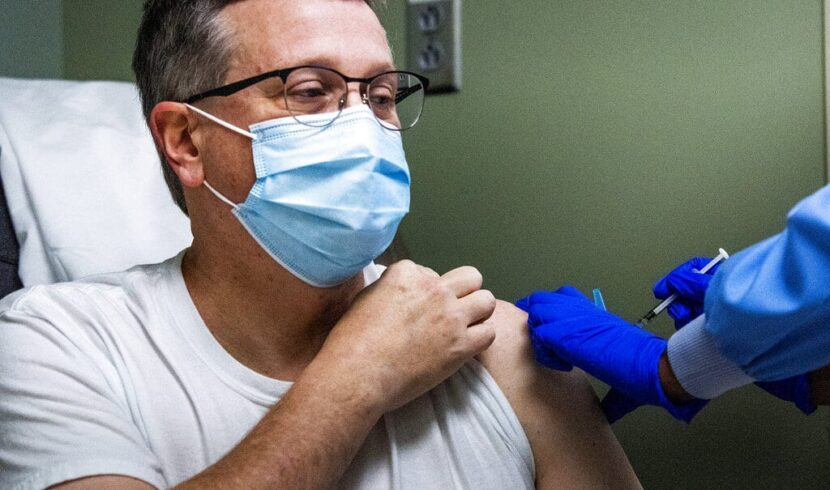By KIM CHANDLER, Associated Press
MONTGOMERY, Ala. (AP) — Vaccines for COVID-19 are now widely available in Alabama, but the problem is some people remain hesitant to take it, State Health Officer Scott Harris said Friday.
After months of struggling with getting an adequate supply into the state, Harris said health officials are now trying to battle some people’s reluctance to sign up for doses. While people can be reluctant to take the vaccine for a variety of reasons, one of them is the false belief that the vaccine is more dangerous than the virus, he said.
“If you can identify one single issue that is a problem, it’s that there are people who are just convinced that the vaccine is somehow more dangerous than the disease. That’s a false belief we have to try to combat as often as we can. It’s simply not true,” Harris told reporters.
Nearly one-third of the Alabama population has received at least one dose of the vaccine. However, that figure ranks Alabama third last in the nation ahead of Mississippi and Louisiana, and Alabama is last nationally in its overall rate of vaccination. New Hampshire is the highest with 60% of the population receiving one dose.
He said health officials are conducting media campaigns and asking doctors to contact their patients about the benefits of getting vaccinated.
Harris emphasized that vaccination “is the fastest way to get back to normal.”
“If we’re gonna to get back to normal, we’re gonna have to have this disease stop circulating,” Harris said. “We’re gonna have to stop having deaths every single day in Alabama, which is what we’re having right now.”
As supply now outstrips demand, the University of Alabama at Birmingham announced that appointments will not be necessary at its vaccination sites. The school said it was spending $1.4 million a month to operate four large immunization sites, but the number of people receiving initial doses at the locations has dropped 78% in three weeks.
An expert at UAB, Dr. Jodie Dione-Odom, said Alabama has an adequate supply of vaccine and multiple places for people to get shots, yet is still trailing the nation in its immunization rate.
“We do have a ways to go,” she said.
Dione-Odom urged pregnant women to get vaccines since they are at particular risk from serious complications from COVID-19, in part because of the strain that carrying a nearly full-term baby places on the respiratory system. A study of 35,000 women who got Pfizer or Moderna shots while pregnant or either right before pregnancy turned up no problems, she said.
“There were no signals of concern when you compare the women who were vaccinated in pregnancy with those who were not vaccinated in pregnancy,” Dione-Odom, an associate professor in infectious diseases, said during a briefing Friday.

